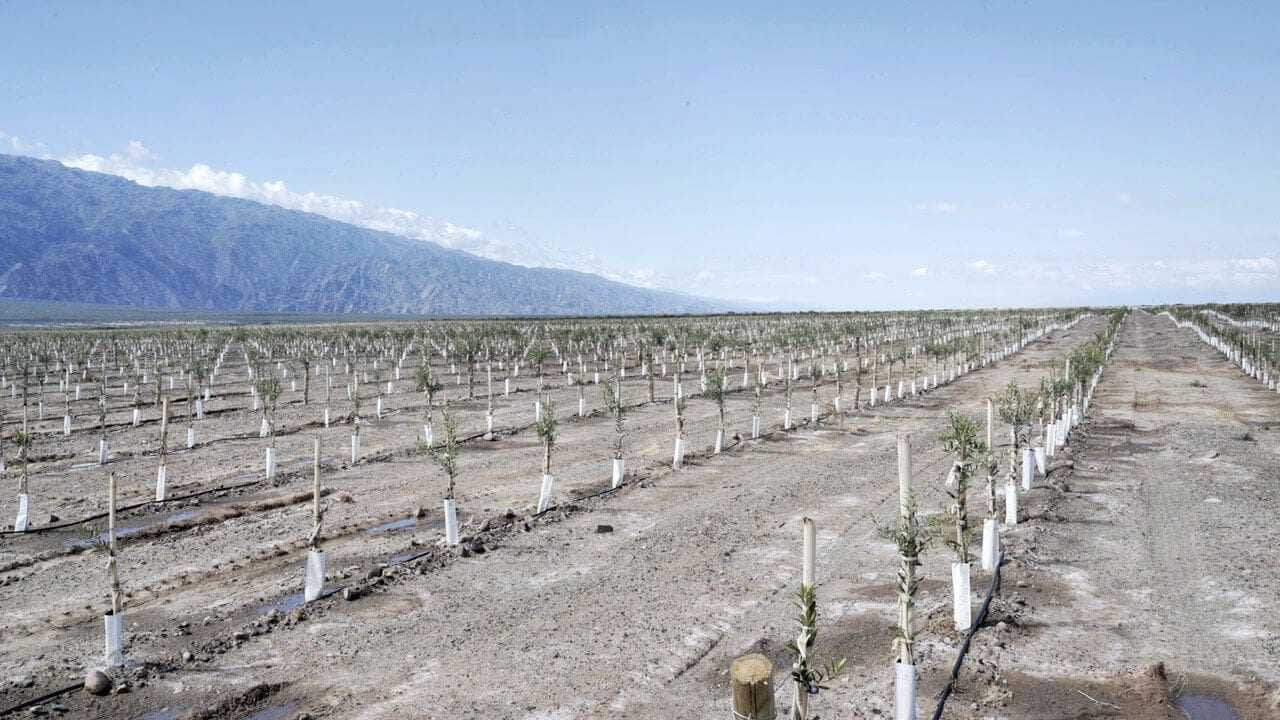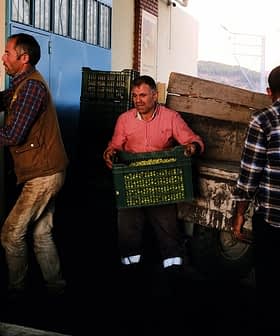Argentine Producers Await Word on Export Policies As Harvest Nears
Producers in Argentina are expecting a better harvest this year as they look to a new government to spur more exports.
Now in the middle of its growing season, Argentina’s olive oil producers are expecting production to remain steady when harvest time comes in spring 2020.
The forecast is encouraging even as domestic consumption remains relatively low and a new administration with new agricultural policies that could shake up the country’s robust export market is coming into office.
Any optimism felt among Argentina’s olive oil producers is the result of a boost in exports in recent years, primarily to the United States and Europe.
We hope that the new administration will take the necessary and right measures to maintain our international markets, but we do not have official clarity of state policies on foreign trade yet.
“Argentina’s exports of olive oil grow year after year,” said Frankie Gobbee, co-founder of the Argentina Olive Group (AOG), the largest olive oil producer in Latin America. “Argentina is the first country in America and the third in the world to export extra virgin olive oil in bulk to the U.S.”
Gobbee said Argentine producers also export fresh extra virgin olive oil to international brands in Europe, so they can “refresh and lead their virgin oils that are already six months old.”
Exporting is the main driver of commerce for Argentine producers because, despite the fact that Argentina is the largest producer of olive oil in North and South America, domestic consumption is low, relative to other olive-oil-producing countries.
See Also:Olive Oil Trade NewsArgentina consumes less than a quarter of a liter of olive oil per person per year, compared with 12 liters in Spain, according to the International Olive Council (IOC).
“The exports are increasing in our olive oil factory but [consumption in Argentina] is not,” said Gabriel Guardia, facility manager at Olivícola Laur, an NYIOOC World Olive Oil Competition award-winning producer. “Competing with European prices is complicated by the costs; prices cannot be matched.”
However, Gobbee said that domestic consumption has been “growing little by little” since Argentina produces fresh olive oil on the opposite schedule of European producers.
Notwithstanding the slow rate of growth of domestic consumption, the quality of Argentine olive oil is one reason exports have taken off.
“People are becoming familiar with the olive oil made here because the producers take a lot of care about the quality,” Guardia said. “It has been a priority for years to let people know about the good quality of Argentine extra virgin olive oils.”
Growers produce low-acid olive oil on largely pesticide-free land using native cultivars, such as Arauco, along with traditional Italian and Spanish cultivars that thrive in Argentina’s unique climate.
Spanish Arbequina and stalwart Italian varieties Coratino, Leccino and Frantoio all flourish in Argentina’s climate of hot days and cool nights.

“They have adapted very well to the Argentine climate, and they have shown different characteristics from the original varieties,” Guardia said. His NYIOOC Gold-winning Establecimiento Olivum Blend Medio has a distinct herbal note with a robust spiciness that typifies the best Argentine olive oils.
The experiment of growing European cultivars in Argentina has been so positive that some Italian and Spanish producers are forming partnerships in the country to mitigate bad growing seasons in Europe.
Lucini Italia, for instance, recently released its Everyday Extra Virgin Olive Oil, made of olive oil 100 percent sourced from Argentina. Citing the “new world innovation happening in Argentina” Mike Forbes, executive president of Lucini’s parent company, said the partnership will help raise the profile of Argentine olive oil.
Thus, growing Argentina’s industry is a matter of investment, according to Gobbee. More producers on more land are needed to cultivate the country’s fertile growing regions.
“We have more land, we need more investment to keep on growing in terms of volume,” Gobbee said. “We have the Andes range that provides fresh water every year to the olive trees.”

Frankie Gobbee (OOT file)
Guardia added that although there are environmental factors that limit olive oil production in the country – dry Zonda winds fly off the Andes at up 150 miles per hour during the growing season, sometimes leaving only five percent of fruit on the trees, he said – government support is needed to increase exports, and thus the industry’s growth.
“The government support also affects [the industry] because producers are better off selling the estate and doing business rather than maintaining it,” Guardia said.
That is likely due to the high cost, comparatively, of agriculture in the country and its associated taxes, which are critical to the country’s economy as agricultural exports are one of its biggest revenue sources.
Guardia is hopeful a new administration, led by the left-leaning President Alberto Fernández, will support the country’s olive growers, though there is concern about tax hikes on exports and maintaining diplomatic and commercial ties with the U.S. and other major markets for Argentine olive oil.
“The new government has not made any announcements about its foreign policy,” Guardia said. “We hope that the new administration will take the necessary and right measures to maintain our international markets, but we do not have official clarity of state policies on foreign trade yet.”
Gobbee is more optimistic about the new administration, saying that it is “looking to increase exportation and looking for better ways to tax local and regional agriculture companies.”
“It’s a good moment to grow on Argentina plantations,” Gobbee said, adding that the new government will “give more importance to agriculture and exports… [because] they know that agriculture is very important for our country.”
Until Fernández’s policies – and the impact of Cristina Fernández de Kirchner, Fernández’s running mate and the former president who previously imposed export quotas on the agriculture sector – are made clear, Argentine producers will look forward to a projected 25,000-ton harvest and hope its export markets remain viable.








